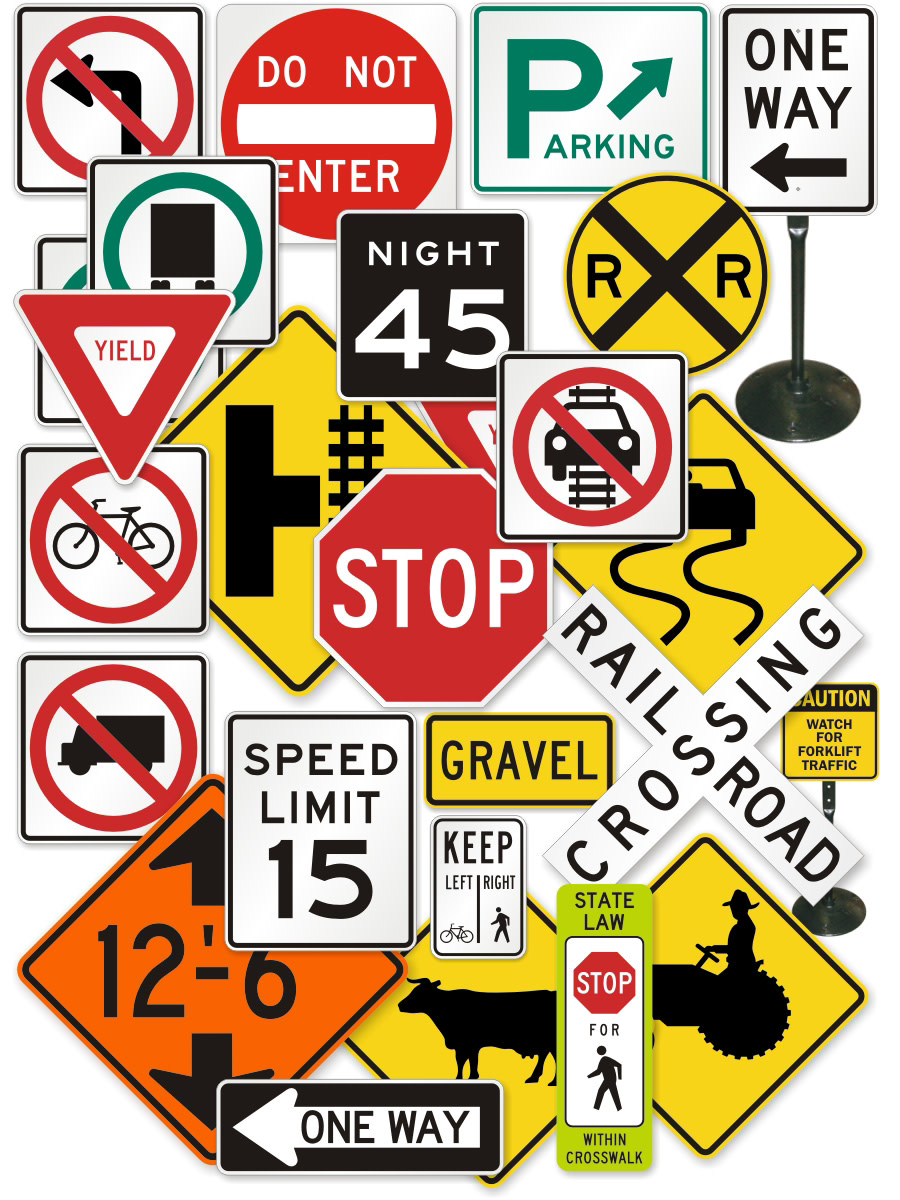Is God Perfect?

Perfection can mean many different things to different people. We bandy the word about like there is a definitive of perfection, but there is not. The definition changes as mankind evolves. That doesn't mean we can't judge perfection. We do have criteria for it even though those criteria can be altered slightly over time. Does the Christian god meet those criteria?
When looking at the Christian god, we are told time and time again that it is perfect in every way. We are told that it can make no mistakes, that it is unchanging and that it is indestructible. This perfect god is all loving and all wise; it is fair to a fault.
These are all attributes that mankind considers the epitome of perfection in this day and age. But does man kind's god actually show these attributes? Though it is usually taken for granted that he does, it is actually a matter of interpretation, and that fact alone casts a great shadow of doubt on the whole theory. But there are specific points we can look at that might give us a few clues.
Let me put this in human terms. We consider a man who is jealous, with or without cause, to be a troubled individual. His relationship with his mate is usually stormy and volatile. Jealousy brings with it "acts" that are counterproductive to a relationship. Jealousy also shows that there are other issues an individual has to deal with on a personal level.
Unjust anger, violence, and abuse, are all symptoms of a man or woman who is unbalanced in some way. Either through example in early life or through abuse, these people have lost personal self esteem, or hold themselves as being above all others.
Either of these states can produce almost the same results. Not surprisingly, most people who present an heir of superiority are just compensating for a major lack of self esteem; and that's how they deal with it on a day to day basis. They create an image of over confidence which is actually not felt within themselves.
Any good course in self behavioral modification tries to get to the root of these problems and tries to eliminate, at least, the outward symptoms. People actually can change for what we consider to be "the better.”
So some of mankind spends a lot of time trying to become a little more "perfect," a little closer to balance. We want to be able to "handle" situations in a positive way. Even our religions try to give us tools that will allow us to cope with jealousy and feelings of inadequacy.
Jealousy is clearly not a virtue in the eyes of modern humanity, but it is a condition which its gods seem to have shared in abundance since the beginning. The Greek's "Zeus" was a jealous god, "Re" was a jealous god, and certainly the Jewish and Christian god is also the epitome of jealousy. I'm not sure how many times it is mentioned in the scriptures, but I can think of at least three cases, and I have never heard anyone dispute the fact.
All cultures in the region the bible is concerned with were ruled by men who considered themselves to be descendants of their gods, and their subjects bought in to that idea. A leader who is the son of a god is infinitely more preferable as a ruler than an ordinary man. After all, the power he holds is literally that of life and death. He could also better hedge their bets with their god because, as his son, he had god's ear.
So it's not hard to see where this idea of a jealous god came from. Kings throughout the ages have demanded absolute obedience from their subjects; it was the only way they could rule efficiently. It also made for hard times when your ruler was a corrupt and jealous tyrant.
When it came time to create the ultimate creator, it was not expected that he should be any different from the people he created, in fact, it is said he created us in his image. That alone should show what a messed up god he must be. And sure enough, the god of the bible exhibits all of the failings that mankind considered normal and acceptable in the time it was first created.
But what would a god have to be jealous about? Usually it is said by Christians that he is hurt when we turn from him to idols and other gods. He feels slighted by us and reacts in rage. Again, this is documented time and time again. But what this says about this god is that it holds itself in the highest esteem.
But does it really? It can feel rejection, loneliness and isolation. It can feel a sense of worthlessness. That is the basis for any rage related to rejection. It also implies that it does not see itself as perfect and cannot be fulfilled without us feeding its ego with worship.
There is a way this god could have remedied its problem, and I’ve already covered it elsewhere, but let’s look at it from a different angle. This god sets itself up for rejection because it does not show itself.
Of course, it is the best way for man to rule man. A god that cannot be seen cannot be asked the truth, and any man can say his words come from god. It's a nice little trick.
It is apparent, though, that this god does not understand the human psyche very well. This is odd since it has supposedly created it. But never the less, the greatest and most loved kings have been the ones that were very visible to their people.
To replace this visibility, religion turns to prayer and an indefinable and un-verifiable, faith based "personal relationship." It is somewhat a kin to a child that has never seen his father. Even though they may feel abandoned by him, they tend to make up an image of him in their mind and hold it near. They even talk to him in their minds and make up stories and dialogues.
The image may be nowhere near the truth but it serves to help the child deal with their feelings of inadequacy, loneliness, and rejection. The same methodology is in effect with people that say they have a personal relationship with their god.
To me at least, a perfect god would be above feelings of rejection. Many of us have had children who go through stages where they reject us and all that we stand for. If you are a person who takes this kind of thing to heart, then you are hurt by it, but if you see it for what it is: a stage the child must go through in order to make his or her own way in the world, you can take an overview and realize that it isn't you they are rejecting, but rather, themselves they are trying to find.
Making a big deal of it usually ends in conflicts that separate you from your child even farther. This is not usually a permanent state of affairs, but it can put a tremendous strain on a household, and if the adult is the kind of person who fights rejection with rejection, then it can damage the relationship forever.
However, if the parent deals with it all in a calm and collected manner, the child gains more respect for the adults self control and self assurance. It becomes easier for the child to emulate that condition within themselves. In the end, they look up to the parent.
"Love me, worship me, or go to hell”. If I were to say such a thing to my children, all I would accomplish is to instill fear in them. This is apparently what this god wants to do. We hear it all the time: "he's a god fearing man". Being god fearing seems to be considered a good thing.
Not if he is a loving father. Ideas of this nature show a distinct lack of love and a relationship with humanity more in tune with a tyrant dictator than a loving god. I do not want my children to fear me. No loving father does.
A happy and well adjusted child is one that knows it is loved by its parent "unconditionally." Christianity says that god does love us unconditionally but that is not so. The condition for god's love is apparently belief; "faith” in his existence, and absolute obedience. Anything less than that means an eternity in a hell of this god's own creation.
We are expected to love this god and worship it while here on earth, because upon death it is too late. This is not unconditional love by any stretch of the imagination. Even were we able to reconcile with it upon death and upon meeting it, we would see a sign of this love, but as it is there is no sign what so ever.
Again, this was a perfect way to keep people in fear, and believing in this god. After all, mankind had no other knowledge of what it was, and a god seemed logical at the time. Might as well love it just in case it is really there.
If it can create us perhaps it will favor us with everlasting life. How selfish mankind is. What a selfish god it has. They suit each other. They are made in each other’s image. I have to laugh at the shear irony of it. Is this perfection?
What all this says to me, is that god is telling us: "I'll love you only as long as you worship the ground I walk on, and obey me in every word without question. Otherwise I will torture you for eternity." Death is a mercy god does not afford.
What happens if all your life you were unaware of this god and then upon death, discovered it actually existed? It seems that according to fundamentalism, such a scenario would leave you roasting in hell anyway, and no amount of pleading your case would move him to show mercy. It seems this god is not at all "All forgiving" either.
It would be a pretty warped personality that took that approach to child rearing in this century. But at one time in our history we did have that kind of mentality. A child was shunned and disowned for the slightest infraction.
"A child should be seen and not heard" is not a phrase from all that far in the past. In some cultures children were, and are still seen as possessions. They were sold in to slavery, murdered at a whim. Children did fear their fathers and mothers, and with good reason. But we have evolved out of that idea. “I brought you into this world and I can take you out.” May remind us of empty threats our parents gave us, but those threats were not always so empty.
We no longer feel that corporal punishment is a solution for the unruly child. Yet in the bible it clearly states that if a child disobeys his father and mother, and they are at the end of their tether with him, they are to take him to the town gates and have him executed by stoning.
Few of us would consider that an option in this day and age. Most of us would consider it barbaric and the most vial kind of insanity and ignorance. Yet how many parents took those words to heart? How many children were stoned to death in the name of god?
It is funny, then, that we (in this age) can find that same attitude acceptable, and even virtuous, in the words of a god in a book. But that's the point, isn't it? If you have a god like that, or a parent like that, then you are stuck with it. You have no choice in the matter anymore than you do if you are caught in a typhoon at sea. It is also a fact that children still love their abusive parents. The one thing they continue to "need" from them is acceptance and love.
Life in ancient times was abusive. Not just in family relationships but in the lifestyles these people had to live to survive. It was a tough life. God sent droughts to test our faith. He sent plagues to punish us. All mankind wanted was love from his creator.
But mankind knew by experience that love had a price. It is no wonder they were able to forgive their abusive creator as long as he was doing it all with a reason and a purpose. As long as he loved them too, all was understandable and unquestionable. The way mankind justified this cruelty in their god was to blame themselves for provoking the wrath of god as children blame themselves for provoking the wrath of a cruel parent.
In the final analysis, that's where gods arise from, in fact: The idea that we are helpless against the elements and at the mercy of wind and natural disaster. Somehow we felt that it was our fault. Somehow we felt that if we appease these gods they would show us love, or even just mercy, and spare us. We took them as supreme beings. Not perfect in any way, but superior; so how could we question?
"God works in mysterious ways" is another way of saying it all just doesn't make any sense, why not simply live with it? After all, we are nothing and never will be. Let god take care of it the way he sees fit.
To me, this is a cop-out on life. We know that it is up to us to find solutions to our problems and to protect ourselves from the elements. No amount of appeasement has ever stopped a flood, earthquake, or a tornado. No amount of prayer has ever stopped war.
None of this shows a god of infinite love and understanding.
Most Christians I have spoken to about this say: "But god created us. Does he not deserve worship and love for this alone? He also promises salvation. No matter what happens to us on earth, if we believe, we will be saved and sent to heaven on the: Day of Judgment."
If we had asked to be born, then perhaps it would. We could justify god's actions by saying there is a payment to be made for such a gift. But we do not ask to be born, so eternal hell is not a just payment. A contract cannot be made if both parties don't agree. This makes us god's possessions to do with as he pleases; not free human beings.
Does the fact alone that a man sires a child make him a loving father worthy of worship and love; even if he abuses and beats that child? I think not. Even if he promises that he will give them love if they do exactly what he wants at all times, and promises that he will leave them all his wealth and riches if they forsake their own will for his; it does not make up for the un-requested and undeserved abuse they must suffer in the mean time.
Children will endure almost endless torture to please their parent if they are given but a scrap of love for their effort. It is a sad state of affairs when we have to say the same about our god.
The fact of the matter is that most of the religious don't even dare to think such a thing. They are taught that their suffering is not the fault of their god, but the fact that they have somehow done something to anger their god.
Is anger a sign, or a part, of perfection? I think not. It seems to me that a perfect god would be above anger. The Christian and Jewish god is an angry god. He seems to be far from being above that state of mind. A god of perfect understanding has dealt with all aspects of anger and simply doesn't need it. Many human beings can lay claim to having risen above anger, yet their god cannot make that claim.
Anger is a motivating force within ourselves, just as all emotions are. Emotions force us to act. How we act and what emotions we feel and act upon is determined by all our past experience and conditioning.
When we see injustice in the world it makes us sad or angry. We want to change the perceived injustice. We try to find ways to do that. But because of our lack of knowledge and understanding we get frustrated and even angrier when a solution is not found, or justice is not served to our liking.
A perfect god would know the solutions to every problem, it would have no need of anger, in fact, anger would be beneath it. The god of the bible does not meet these criteria of perfection either.
Can a perfect god create imperfect beings? It could if wanted to, I suppose, but what would be the point? In any case, it is said that the angels and man were created perfect, but that seems impossible if satan was capable of imperfection or man was capable of sin. As I mentioned before, if satan wanted to be better than god or on the same level as god then he shows a distinct lack of perfection as well as profound lack of intelligence. How could he expect to be anything more than perfect? How could he ever expect to defeat a perfect god? Why would he want to?
I can imagine a perfect god simply laughing at his errant child and teaching him his faults. But this god is threatened by his creation. And then it is threatened again by humanity when Adam and Eve eat from the tree of the knowledge of good and evil.
GEN 3:22 And the LORD God said, Behold, the man is become as one of us, to know good and evil: and now, lest he put forth his hand, and take also of the tree of life, and eat, and live forever:
The gist of this passage suggests that god does not want us to be like him. Unlike a loving father who wants the best for his child, and in fact, wants that child to surpass him, this god is threatened by his human creation. To me it suggests that he wants to continue to hold ultimate power for himself. He is lord and master. We are just his creation. This is not like a loving father at all.
This is not unlike the kings of old, and the battles their son's had for the throne. In the days of the bible it would have been acceptable for a son to attempt to take the throne by force; it was expected in certain cases. It seems obvious that at this point in history, man still felt that gods would do the same thing. Certainly, the failings were obvious in the gods of the past. Zeus was not a perfect god either, and the people saw that.
The fact that he was more powerful than they was enough. I can't imagine how mankind has come to the assumption that the Jewish god is, in fact, perfect. I just can't see it anywhere.
What the above passage also shows is the limited power of this god. He is suggesting that if we had eaten from the tree of life there would have been nothing he could have done about it and we would have lived for ever as gods. But that makes little sense. Just living forever, alone, would not give us the powers of a god. It would not make us all wise and all knowing.
Besides, if he is going to give mankind everlasting life anyway, then what is the point to all of this? Wait a minute... If we either go to heaven or hell upon death, (or Judgment day) then we already have ever lasting life whether we like it or not. So what is the bible talking about? God says we didn't eat of the tree of life, yet we already have ever lasting life by default. Confused yet?
There are those who say that he has to weed the bad ones out from the good, first. But that implies he doesn't know, in advance, who will commit mortal sin and who will be good enough for heaven. If he doesn't know that, in advance, he cannot be all knowing. How can religion say he is when the scripture itself proves he is not?
It seems god actually believes that a satan or mankind can do him harm. If so, what does that imply? Certainly not a perfect god.
As I mentioned, he doesn't even want us to be like him. Actually, his direct quote is "us". What is meant by this is uncertain. Everyone that I have spoken to has a different idea of what this means. Some say the use of "us" is like the royal "we". Others say he is referring to the "father, son and holy spirit." Still others have suggested that he was referring to his angels or sons. Perhaps to all the other gods he doesn’t want us worshiping?
As far as I can see, when mankind disposed of all of his other gods, he actually turned them in to angels. Perhaps we couldn't bear to just throw them all out. Perhaps we didn't want this poor, single, god to be lonely.
It is not revealed in the bible as to when these angels were created, or how. It is also not known for sure what they actually are supposed to be. Many suggest they are immortal servants of god. That would fit with previous theory about them being the remnant of the minor gods. But I must ask, what would a god need with servants? It seems silly, really. Here is an omnipotent god that can do anything it wants with a mere word. What in the world does he need immortal servants for? It makes no sense what so ever.
Another theory is that they are actually "all" his sons. This seems to be backed up by some Gnostic notions that satan was a "son" of god. This explanation better suits the attitude with which god receives satan in such scriptures as Job.
But as I already showed in my essays on the devil, the word satan is not a name, which is why I do not capitalize it. A satan, in the Hebrew language, is an accuser. In the Jewish tradition a satan is like a cop that lays charges and then reports back to god with them. They are not evil by default, they are angels with a job to do. They work for god. In Enoch, they are the watchers.
But working within the Gnostic myth, if he is a part of god as we are, (made in his image) has eaten from the same tree, and is immortal, then he is a god just like Jesus. He would be Jesus brother. This is all very contradictory, at the very least. But only if he is a god could I see him thinking he has a change of winning the thrown, just like it has happened here on earth time and time again.
But the Christians don’t get away with saying god is all love. He admits to creating evil. Why would a perfect god that is supposed to abhor evil want to create it? I have even heard many Christians say that he cannot abide evil in his presence. How could it bare to create it? Evil is usually thought of as being the opposite of god. God hates it and wants to wipe it out. So why did he create it in the first place? It seems another glaring contradiction, doesn't it? But it is only a contradiction to the idea of the loving Christian god.
This kind of thinking may well have been constructed to advance the theory of a single god, and that was likely the intention of the people who wrote these passages in the bible. After all, if there is evil and injustice in the world, (as seems obvious to us all) then a case could be made for the existence of a second god. If yours is all love and light, and cannot abide evil, there must be another reason for evil. If it does not come from god then it has to come from somewhere. But this is the Jewish god the Christians are saddled with, and he is both good and evil.
Up until this point in the bible, a case could have been made for evil being the creation of a satan or mankind. But this and all other explanations concerning a satan or man being the authors of evil are quickly dispelled by aod laying claim to evil as well as good.
"I form the light, and create darkness: I make peace, and create evil: I the LORD do all these (things)." -- Isaiah 45:7
As I have discussed before, what we find here is a god of extremes. It shows extreme love and extreme hate at the same time. Seen this way it becomes a balanced god, but it is balanced through paradox. It has little or nothing to do with perfection or god as Christians have come to know these ideas.
A perfect god would, in deed, be perfectly balanced in all things. The case can now be made that this god is perfect love and perfect evil at the same time, and that such a state puts him in perfect balance. But I'm sure no Christian would want to entertain such a notion about their god. Yet the Jews might.
If that is the case, and god is perfectly balanced, then why all this talk of a war between good and evil? Is god not both to perfection? It would mean that god is at war with himself. But the fact that it is at war with itself, negates the possibility of perfection.
The other explanations I have heard are that he created evil so we would be able to know good when we saw it. This seems like a rather self defeating idea, at best. At least, it is self defeating for Christianity.
It goes against the very nature of Genesis by implying that god actually wanted us to eat of the tree. It also assumes that we could not know "good", without, eating from the tree.
The problem for the Christians who hold to this theory is: If mankind could not know evil nor good without eating from the tree, then original sin is impossible. But I will save more explanation of this for another time.
The other explanation I have heard is perhaps more in tune with Christianity, but no less disturbing for it. Many believe that god created evil so we would have a choice. The logic goes that if there were nothing to chose from, then god would be our only choice, and "he doesn't want robots worshipping him."
In other words, god only gave us free will for his own glorification. It sounds very much like a game a child would play with an ant hill. This theory literally makes me ill. The thought of a "divine being" playing with people for its own glorification is sickening, to say the least.
This certainly does not show a loving father figure. It is the classic profile of a sadist and an ego maniac. Such a god is to be feared, indeed. It is to be loathed. An attitude like that is far more befitting a Christian satan, than a god.
We see by the very nature of man and the constantly changing universe that there is no absolute perfection in any of creation. The very nature of "change" implies imperfection. A perfect thing is timeless and changeless. What can it achieve by change that would make it more than perfect? Why would a perfect god want to create an imperfect universe? What could it gain by this? Was it lonely, as so many people try to point out? If so, then once again it shows its lack of perfection because it shows its lack of fulfillment, and something which is unfulfilled cannot lay claim to perfection.
The very act of creation shows that god changes. If it acts, it must change with every action just as we do. That is the law of cause and effect. For those who claim cause and effect are not binding on this god, I need only point out again that if we had eaten from the tree of life there would have been nothing he could do about it; by his own admission.
This implies that god evolves. I must ask again why a "perfect" god would need creation? Why would, and how could, a perfect thing evolve? To what end? Ultra perfection? That doesn't seem to make much sense either, does it? If a perfect god existed; we wouldn’t. There would be no need to create us.
But the most compelling evidence might be this: If god is supposed to be timeless and changeless then his act of creation would negate that very state of being.
Let's examine another aspect of god's claim to perfection that I have already alluded to. In the bible, how many times does god "repent" having created us? How can we claim this is a perfect god if it does not know in advance what the outcome of any act it performs will be? It is said that it is all wise and all knowing, but that is just not so, as we can see.
It makes mistakes. If it did not, then it wouldn't need to "repent" having made us because it would know every move every single one of us is going to make. I am not saying it would have planned it, though it might have, but simply that it would "know" every nuance of cause and effect, every possibility, and clearly see the outcome of each. No less could be expected of a perfect god.
As I have sighted on so many occasions, it would know in advance, (and even before we were conceived) who would be sent to hell and who would not. To allow babies to be born that were destined to go to hell, would be cruel beyond belief. Yet this is what we must surmise god is doing if he is all wise and all knowing.
This fact alone proves he cannot be all wise and all knowing, and be all loving at the same time; so automatically, perfection is out the window.
But there is more. In the bible, god asks questions of people that clearly show that he hasn't got a clue what we are up to. His reactions to events shows that he had no idea we were about to do what we did. It comes as a complete surprise to him, and even outrages him.
In Job, he even asks the satan where he has been, and what he has been doing. Shouldn't he know? In Genesis, he walks in the Garden of Eden and looks for Adam and Eve. They actually hide from him. How can one hide from an all seeing god?
There are hundreds of examples in the bible that show, without a doubt, that god is not all wise nor all knowing, nor all giving, or all loving, or all forgiving; and certainly, not perfect. Yet mankind continues to ignore the facts and blinds itself to the utter contradictions and imperfections this god of theirs exhibits.
They chose to believe it is perfect even in the face of overwhelming evidence to the contrary, and the only thing they can come up with in its defense is to say that we cannot know the mind of god.
Well, the people of Germany could not know the mind of Hitler either. Many looked up to him as a savior of the German people. He was a hero and worshipped and adored; even by outsiders. But when all the evidence was in, they could see by his actions and his words that he was not only less than perfect, but a mad man.
By the same method, we can see that this god is not perfect either; on any level.
The best we could say for this god, if it existed, would be that it was a lot bigger and stronger than we are. Is that enough to warrant worship? I think not. Is it enough to prove perfection? Not by any stretch of the imagination.
It seems that the more mankind tries to make this myth in to the perfect god, the farther it gets from perfection. Ah... but isn't that always the way with myth? Perhaps, though, it also shows that mankind, itself, is seeking perfection. And maybe that's not a bad idea.









